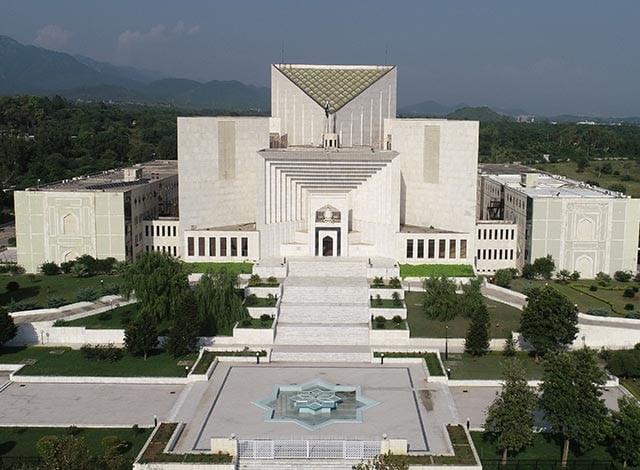Islamabad:
The judges of the Supreme Court are obliged to obtain a “certificate of non -objection” (NOC) of the President of the Supreme Court of Pakistan (CJP) to travel abroad.
Recently, a presidential order has been promulgated by President Asif Ali Zardari, which is called Judges of the Supreme Court (license, pension and privileges) (amendment) Order 2025, in which an amendment has been made in paragraph 14 of Order 2 of the president of 1997.
Paragraph 14 amended says that the CJP has been empowered to grant or reject the license, within Pakistan, or revoke or reduce the license already granted to the judges.
After the amendment, the SC Muhammad Salim Khan registrar issued a general permanence order, which, as a established principle, all the time of a judge is available to the State/Supreme Court, including licenses, vacations and vacations, it has become essential to regulate the powers of the President of the Justice Court as through the SOPS.
The SOPs say that in the first place, CJP will exercise these powers with the proper diligence and in the interest of the public service.
Second, all types of license will be sought in advance, backed for convincing reasons.
Third, while proceeding abroad “” certificate of objection “will not be sought by the president of the Supreme Court of Pakistan.
Fourth, a judge, while on vacation/vacation, will provide your current address and
Contact details
Finally, only in the case of official visits abroad, the Ministry of Foreign Affairs will be requested for the necessary facilitation and protocol.
The lawyers wonder about the issuance of new SOP. A lawyer section says that it is an attempt to control the judges, especially those who question the current functioning of the Judiciary in the events organized outside the country.
The former additional attorney general Tariq Mahmood Khokhar says that travel restrictions per se does not conflict with judicial independence provided they are purely administrative, they are applied fairly and operate within the internal framework of the Judiciary, not under executive control. In the instantaneous case, the purpose seems to be supervision, not administrative, “he adds
Khokhar states that it is potentially a tool for control and intimidation. Judicial independence means independence in decision -making, but judges’ travel restrictions can violate independence if the permit is used selectively or punitively or under executive interference. “
“The amendment needs safeguards against abuse. The United States and the United Kingdom have no such restrictions. In India, the permit is granted transparent, equally and purely for administrative purposes.” In Pakistan, we have had a toxic history.
Travel restrictions were used to control judicial independence: Judge Mansoor Ali Shah was denied permission to travel to Saudi Arabia.
CJP Iftikhar Chaudhary and other Judges of the Supreme Court were prohibited from traveling abroad. The obligation of judges to share their travel plans and addresses abroad is a serious invasion of their privacy, “he adds.




